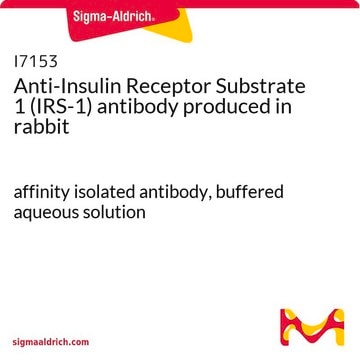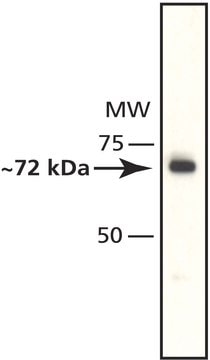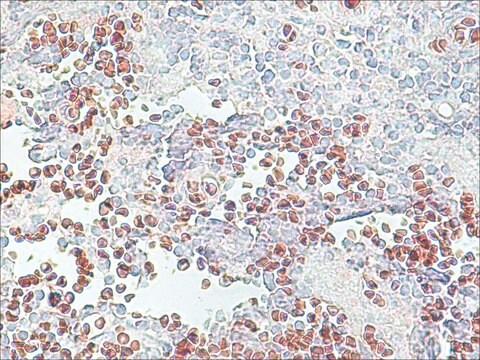H2663
Anti-Histone Deacetylase 2 (HDAC2) antibody, Mouse monoclonal
clone HDAC2-62, purified from hybridoma cell culture
About This Item
Recommended Products
biological source
mouse
Quality Level
conjugate
unconjugated
antibody form
purified immunoglobulin
antibody product type
primary antibodies
clone
HDAC2-62, monoclonal
form
buffered aqueous solution
mol wt
antigen ~55 kDa
species reactivity
human, chicken, bovine, canine, rat, mouse
packaging
antibody small pack of 25 μL
technique(s)
immunohistochemistry: suitable
immunoprecipitation (IP): suitable
indirect ELISA: suitable
microarray: suitable
western blot: 0.25-0.5 μg/mL using total cell extracts from NIH3T3 cells
isotype
IgG2b
UniProt accession no.
shipped in
dry ice
storage temp.
−20°C
target post-translational modification
unmodified
Gene Information
human ... HDAC2(3066)
mouse ... Hdac2(15182)
rat ... Hdac2(84577)
General description
Specificity
Application
- co-immunoprecipitation
- chromatin immunoprecipitation (ChIP)
- western blot
- immunohistochemistry
- enzyme linked immunosorbent assays (ELISA)
Biochem/physiol Actions
Physical form
Disclaimer
Not finding the right product?
Try our Product Selector Tool.
related product
Storage Class Code
12 - Non Combustible Liquids
WGK
WGK 2
Flash Point(F)
Not applicable
Flash Point(C)
Not applicable
Personal Protective Equipment
Certificates of Analysis (COA)
Search for Certificates of Analysis (COA) by entering the products Lot/Batch Number. Lot and Batch Numbers can be found on a product’s label following the words ‘Lot’ or ‘Batch’.
Already Own This Product?
Find documentation for the products that you have recently purchased in the Document Library.
Our team of scientists has experience in all areas of research including Life Science, Material Science, Chemical Synthesis, Chromatography, Analytical and many others.
Contact Technical Service







